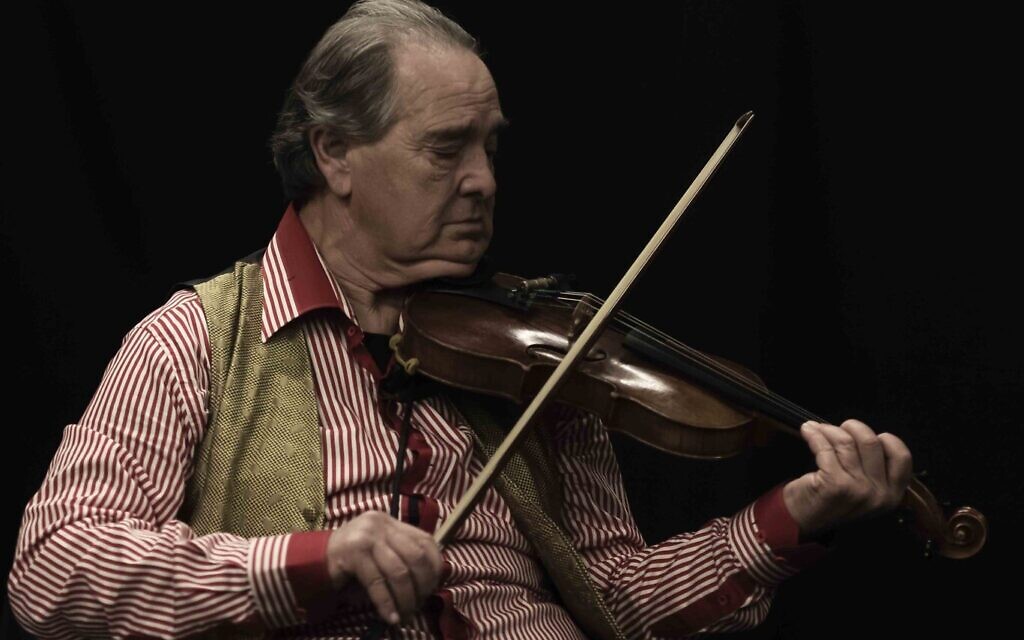Devon-based klezmer band gets the party started
'Ruach' lives up to its name in Exeter
Halfway through a gig at an arts centre venue in Exeter, there’s a bit of commotion. “I thought this was supposed to be a proper klezmer band,” an indignant punter is kvetching to no-one in particular. “I came to see a proper klezmer band!” Off he flounces, muttering about no double-bass, no clarinet, and no klezmer.
Meanwhile, the fiddler pays not the slightest bit of attention. The picture of serene intensity, chin glued to the violin that’s an extension of him, Joel Segal sends the melody soaring and leaping between minor and major keys. It’s the essence of klezmer, lifting the spirit with its infectious joyousness. Below, the dance floor is alive with the swirling presence of people in a room only just large enough to contain both them and their enthusiasm.
Ruach is the fruit of a project that Joel, folk musician and gifted violinist, has been working on for years, following the success of his other klezmer band, Kevara. What he doesn’t know about the music of his Carpathian ancestry may be written on the back of a violin string. Later, backstage, Joel enthuses over the irony of the shteck: “So very telling.” Ruach is as authentic as it gets.
Get The Jewish News Daily Edition by email and never miss our top stories Free Sign Up
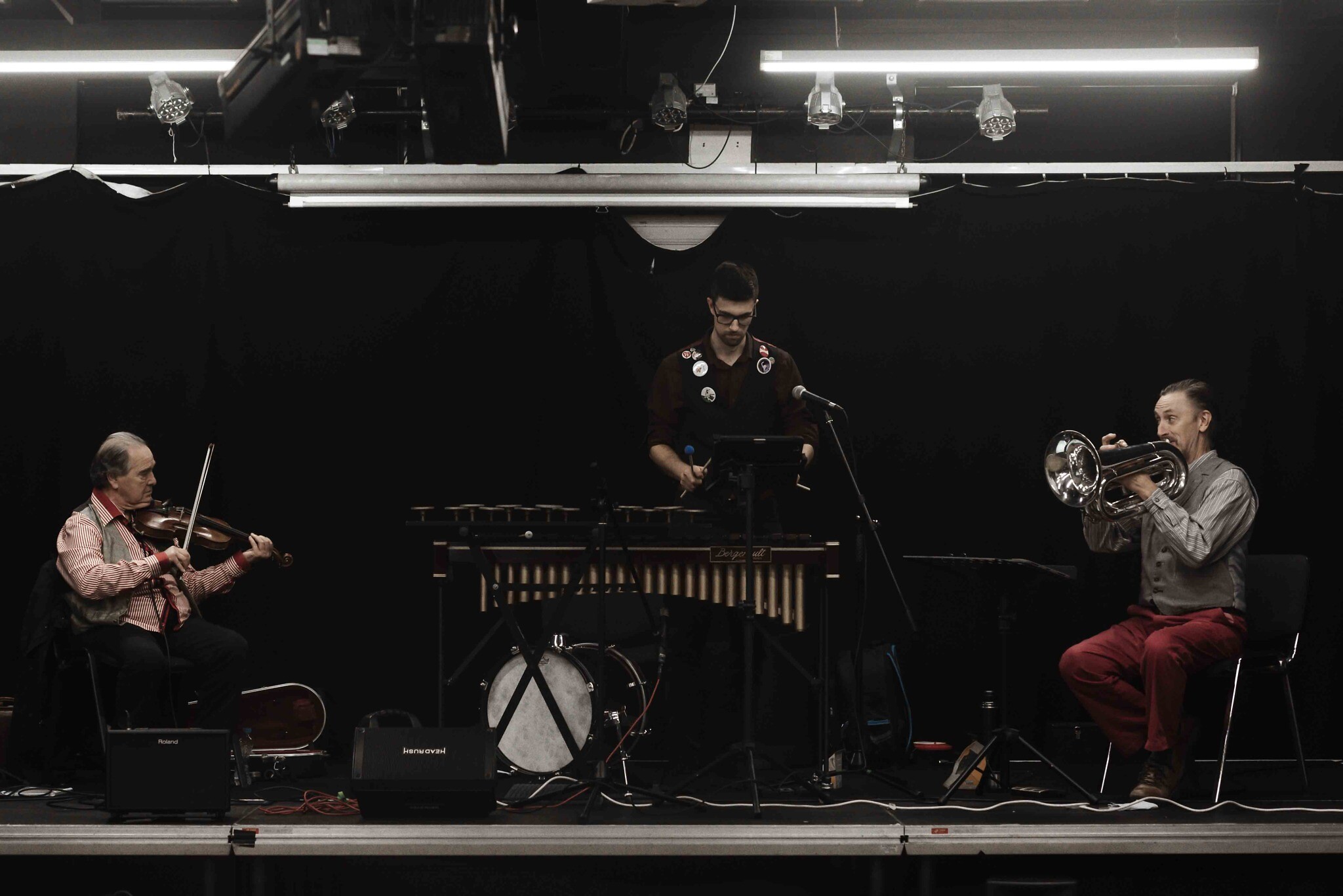
Joel, 69, grew up in north London but has lived in Devon for 50 years and raised his grandson and granddaughter there after the death of his daughter. Always interested in Israeli tunes and Jewish music, he put together a band called Hot Beigels and started playing for simchas. This band became Kevara, and Ruach followed. He’s founded several other bands and played in many, including The Bootleg Swing Band. Spinach for Norman, Joel’s English folk band, has been going for 37 years. Jewish tunes are an occasional part of their repertoire at weddings.
Joel lives in Exeter, home to the third oldest shul in the country after Bevis Marks and Plymouth. He was the shammas of this Grade II* listed shul, which he saved from a fire in 2001 caused by water ingress over antiquated wiring while he lived in it.
Klezmer music is one of most defining expressions of Jewish identity, its roots stretching back to eighteenth century Hasidism and beyond into in a vanished world. While some of its origins are in the music of the lehning liturgy, there are connections that run as deep in the mutual inextricability of gypsy and Jewish music, in which it’s impossible to know where one starts and the other finishes.
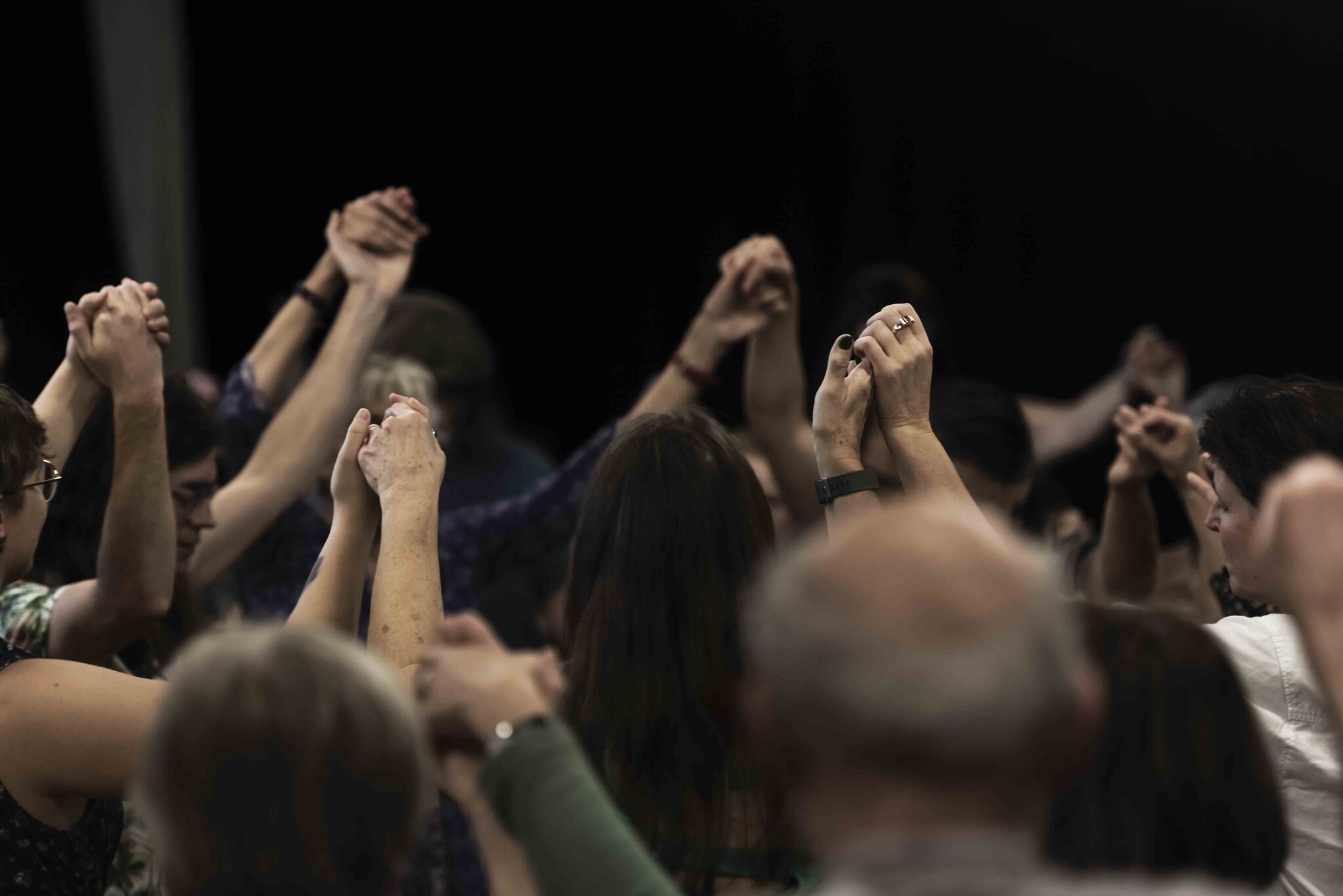 The revival of klezmer in the 1970s, influenced by jazz, in turn fed back into jazz, giving way to other genres of music, like gypsy jazz, with its swooping arpeggios and, more recently, electro-swing. But in the meantime, klezmer has strayed further and further from its origins into something that an Ashkenazi Jew in nineteenth century central or eastern Europe may not have recognised if they’d fallen across it in the shtetl.
The revival of klezmer in the 1970s, influenced by jazz, in turn fed back into jazz, giving way to other genres of music, like gypsy jazz, with its swooping arpeggios and, more recently, electro-swing. But in the meantime, klezmer has strayed further and further from its origins into something that an Ashkenazi Jew in nineteenth century central or eastern Europe may not have recognised if they’d fallen across it in the shtetl.
What is a proper klezmer band? It’s easier to define it in terms of what it wouldn’t have been: neither the showy big-band sound of modern experience, nor the stuff of a tame ensemble – accomplished though many are – playing to an audience rooted to their allocated seating in awed silence.
At the other extreme, the originally Hasidic melody Hava Nagila (or Zayt Lustig, originally) is now routinely banged out at Jewish weddings on that symbol of ersatz entertainment, a lone electric organ, almost as lip service to tradition – before giving way to smash-hit favourites for the rest of the evening. But at least it’s played to be danced to.
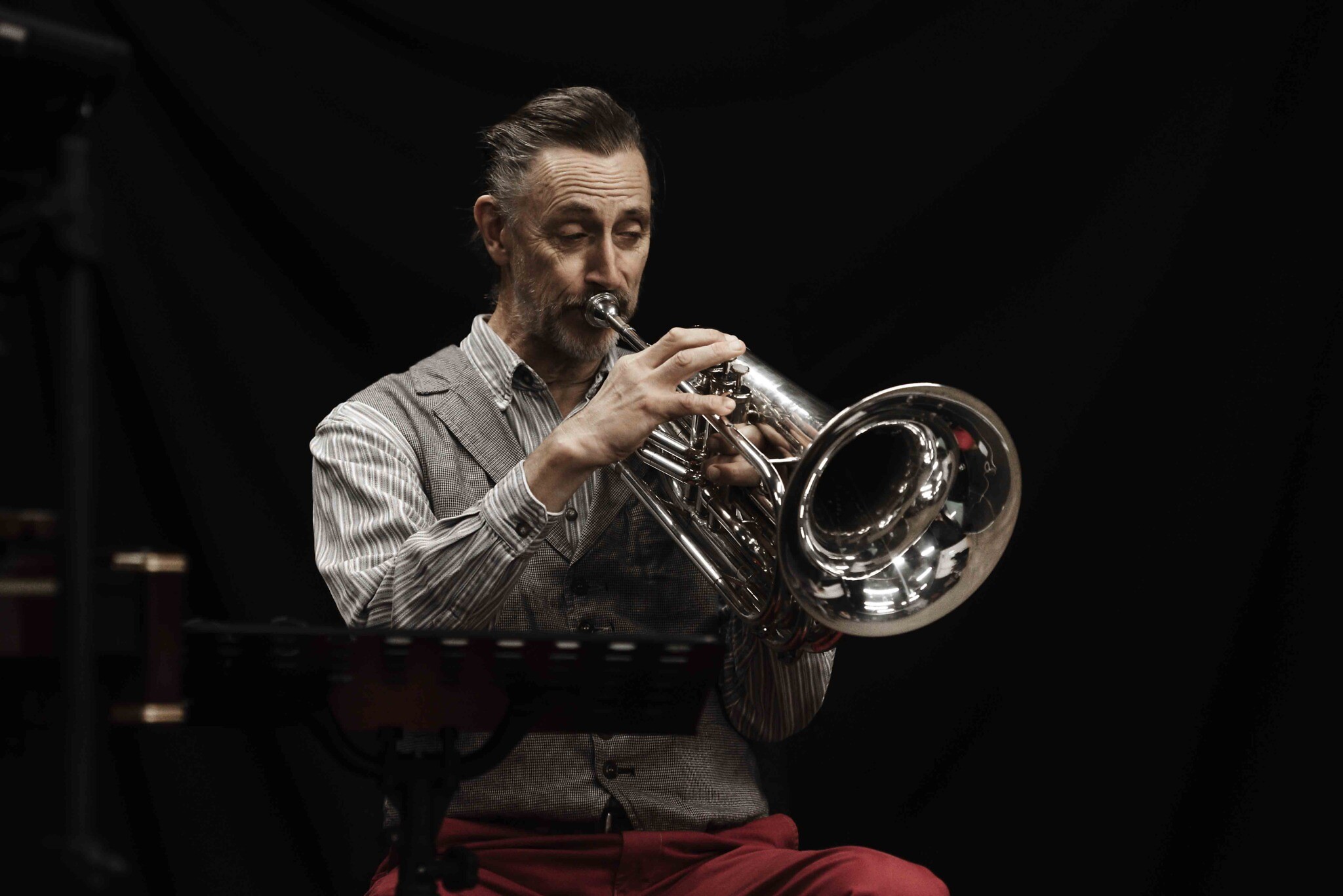
The clue to klezmer is in the name. Combining the Yiddish kle – key – and the Hebrew zemer – melody, it is the means of making music. Once upon a time, a band of klezmorim, restricted to three or four men (with a ban on any more from the relevant regime) would have travelled from settlement to settlement, over the Steppes and the far reaches of the Balkans.
Their instruments would have been necessarily portable, comprising only occasionally something much smaller than the double-bass that’s come to be associated with klezmer music. A xylophone would have been knocked up from different-sized stones for semitones jammed between bales of straw. “I don’t believe there was one shred of virtuosity going on here,” says Joel.
Not that there’s any shortage of virtuosity in Ruach, featuring the equally accomplished Iowerth Pugh, conductor and retired head of music at Exeter College, on low brass, and Io’s son Alfie, (bassoonist, percussionist, composer and conductor) who multi-tasks on xylophone, melodica, and crotales – a series of cymbalon-like discs chosen for its silvery “other-wordly” effect, as Joel puts it.
For Joel, who’s somewhere between populist and purist, this isn’t about a nostalgia trip to a literal reconstruction of an old-country klezmer band, but about finding expression for the heimische atmosphere of the celebrations of Ashkenazi Jewry that has been all but obliterated by the passive spectator experience that klezmer has become. “Jewish people have lost connection with dancing,” says Joel, for whom the dancing takes precedence over the music.
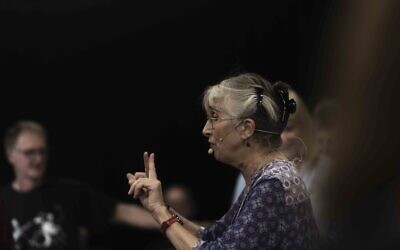
This vital connection is supplied by musician and caller Pam Hayes. With her knowledge of 35-plus dances, she teaches the steps as the tune unfolds.
As the melodies swoop between plangency and super-charged exuberance, they open up a door onto a lost world that also gives forward onto the present. The nuanced complexity of klezmer involves a contradiction, in which the whole is greater than the sum of its parts. In theory it’s practical, by definition: ` the means to the end of making music’. Yet in practice, it’s almost ethereal, full of the decompressed breath of spirit and inspiration, expanding as it reaches the surface. In a word: ruach.
Joel is available between London and the south-west for weddings, bar- and bat-mitvahs. joelsegal@hotmail.co.uk 07790 906118
Photos by Jenny Steer www.jennysteer.co.uk

Thank you for helping to make Jewish News the leading source of news and opinion for the UK Jewish community. Today we're asking for your invaluable help to continue putting our community first in everything we do.
For as little as £5 a month you can help sustain the vital work we do in celebrating and standing up for Jewish life in Britain.
Jewish News holds our community together and keeps us connected. Like a synagogue, it’s where people turn to feel part of something bigger. It also proudly shows the rest of Britain the vibrancy and rich culture of modern Jewish life.
You can make a quick and easy one-off or monthly contribution of £5, £10, £20 or any other sum you’re comfortable with.
100% of your donation will help us continue celebrating our community, in all its dynamic diversity...
Engaging
Being a community platform means so much more than producing a newspaper and website. One of our proudest roles is media partnering with our invaluable charities to amplify the outstanding work they do to help us all.
Celebrating
There’s no shortage of oys in the world but Jewish News takes every opportunity to celebrate the joys too, through projects like Night of Heroes, 40 Under 40 and other compelling countdowns that make the community kvell with pride.
Pioneering
In the first collaboration between media outlets from different faiths, Jewish News worked with British Muslim TV and Church Times to produce a list of young activists leading the way on interfaith understanding.
Campaigning
Royal Mail issued a stamp honouring Holocaust hero Sir Nicholas Winton after a Jewish News campaign attracted more than 100,000 backers. Jewish Newsalso produces special editions of the paper highlighting pressing issues including mental health and Holocaust remembrance.
Easy access
In an age when news is readily accessible, Jewish News provides high-quality content free online and offline, removing any financial barriers to connecting people.
Voice of our community to wider society
The Jewish News team regularly appears on TV, radio and on the pages of the national press to comment on stories about the Jewish community. Easy access to the paper on the streets of London also means Jewish News provides an invaluable window into the community for the country at large.
We hope you agree all this is worth preserving.
-
By Brigit Grant
-
By Laurent Vaughan - Senior Associate (Bishop & Sewell Solicitors)
-
By Laurent Vaughan - Senior Associate (Bishop & Sewell Solicitors)
-
By Laurent Vaughan - Senior Associate (Bishop & Sewell Solicitors)
-
By Laurent Vaughan - Senior Associate (Bishop & Sewell Solicitors)


